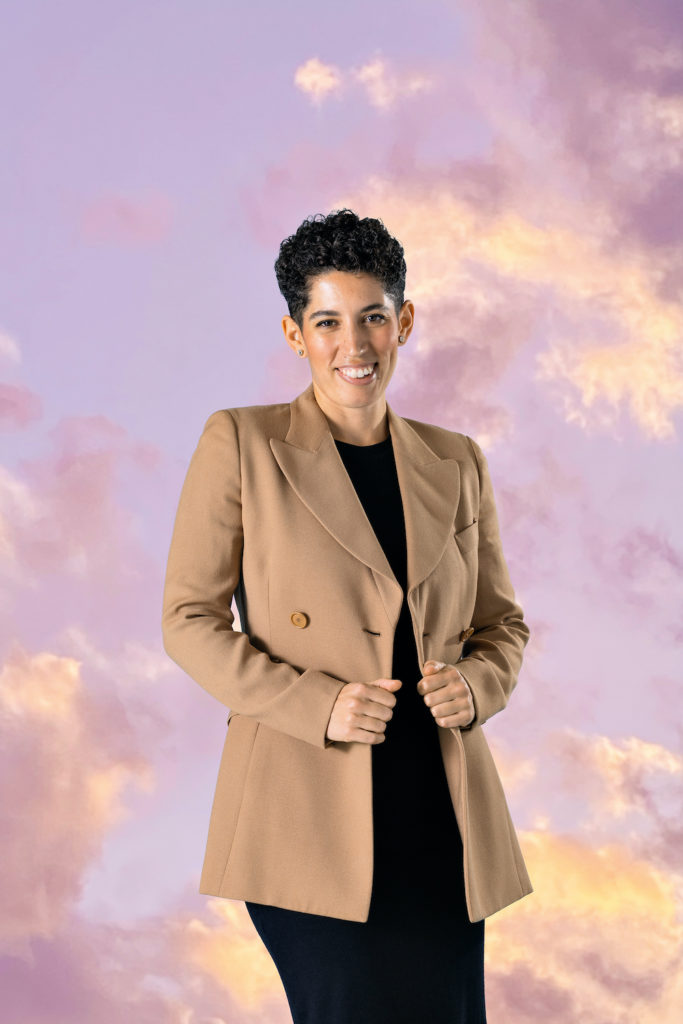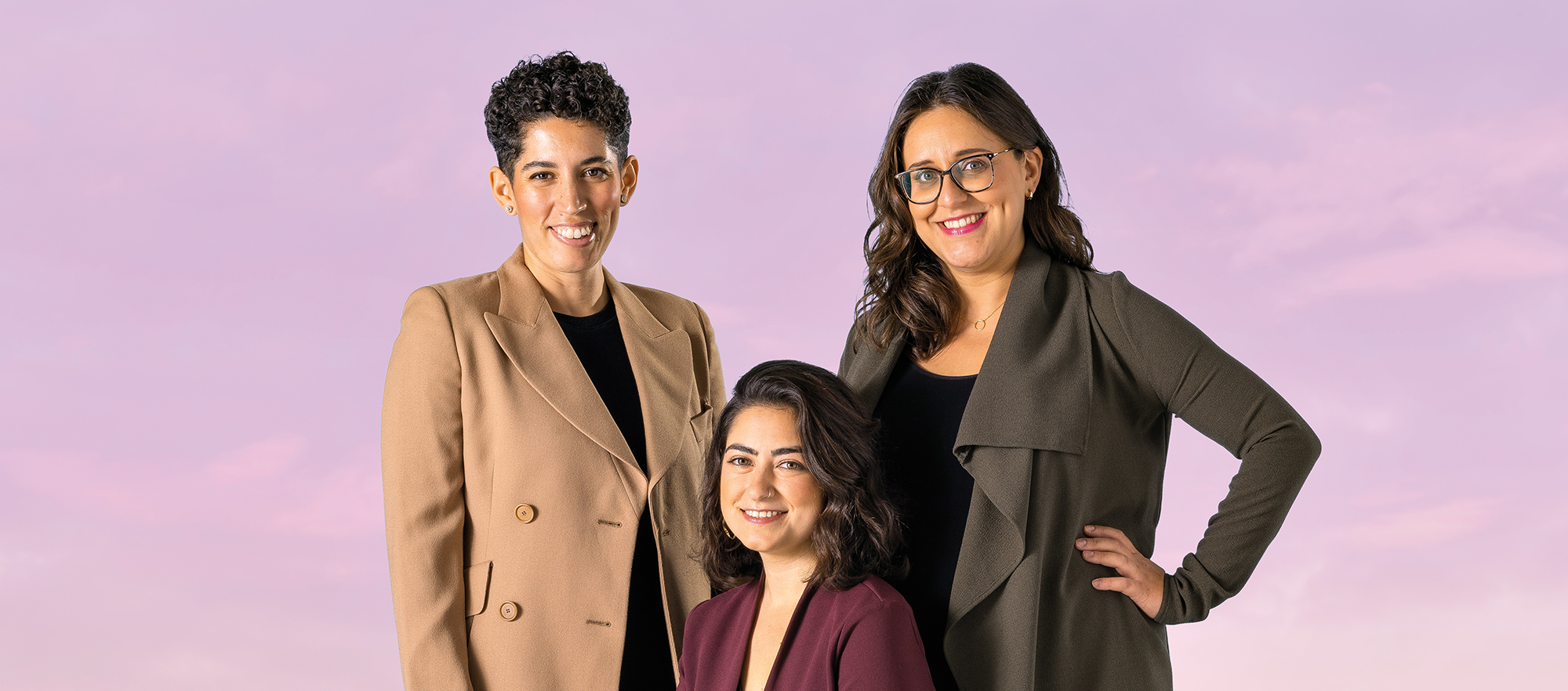After graduating from Harvard Law School in 2017, Leora Smith, who grew up in Toronto, worked as a freelance investigative journalist with ProPublica. For two years, she reported on police misconduct, prison conditions and discriminatory housing systems that enabled landlords to exploit their tenants.
Almost everywhere, she encountered poor and working-class people up against affluent, well-connected opponents or police departments with deep pockets and political power. But she also saw them fighting back, often in groups, with lawyers at their sides. Perhaps, she thought, there was space in the legal industry for somebody like her — a lawyer with a deep commitment to social justice.
In 2019, Smith returned to Toronto to article at the Human Rights Legal Support Centre, where she represented clients who’d experienced injustices like workplace discrimination or racial profiling by the police. Immediately, she noticed a stark difference between Canadian and American legal culture.

Leora Smith
The Community Justice Collective
In the United States, there is a large coalition of “movement lawyers” — that is, lawyers who support social movements by offering legal assistance to entire groups, seeking not just one-off court victories but systemic change. Though Canada has a long tradition of human-rights-oriented advocacy, Smith noticed that only a small number of practitioners have embraced the movement-lawyer philosophy. The profession tends to pursue justice on a person-by-person basis, as opposed to providing legal support toward the broader collective and political goals of the movement. As a result, grassroots community groups struggle to find affordable, broad-based legal advice. “There was a lot of community organizing going on,” she says, “but little by way of politically aligned legal support for it.”
In 2020, Smith and her fellow Torontonian and Harvard alum Sima Atri, who was working as duty counsel in Brampton, decided to launch a non-profit dedicated to movement lawyering in their hometown. The first step was to secure funding for the idea. The duo submitted a grant application to Harvard, which came through with the money. That summer, the Community Justice Collective was born. Additional support — provided in part by foundations and a growing number of monthly donors — has since helped fund the salary of a third member, Aliah El-houni, a recent law graduate from McGill University.
From the beginning, the CJC had a clear mission: to practise pro bono in partnership with community organizations and other like-minded lawyers, enabling marginalized people to push back against powerful institutions. And they would refuse to adopt a guise of phony neutrality. “People feel that if you’re a lawyer, you’re not supposed to have political opinions that interact with your work,” says Smith. “That’s not how we practise.”
Over the past year and a half, the team has offered support to a range of progressive groups: gig workers seeking collective-bargaining rights, Indigenous land defenders who’ve been arrested while protesting and people who’ve experienced police violence and are demanding accountability.
In one case that illustrates the power of the movement-lawyer model, the CJC represented 30 high-rise tenants in Toronto’s East York who were facing eviction.
The story begins at the start of the pandemic, when two cohorts of residents launched tenant associations that could advocate on their behalf with two corporate landlords in the neighbourhood. Around the same time, many tenants suffered COVID-related financial setbacks and fell behind on their rent. Throughout the fall of 2020, eviction notices started to arrive.

Sima Atri
The Community Justice Collective
The CJC and its clients decided to ask the Landlord and Tenant Board to let them fight the eviction of every member of the tenant associations at a single hearing. The plan was to argue that the landlords had targeted these residents in retaliation for trying to bargain collectively. In an unusual move, the board agreed to this request.
At this point, one landlord pretty much stopped litigating. It’s been more than a year since the case began, and, as far as the CJC is aware, the landlord seems to have given up on the evictions. The other landlord did show up for the hearing, where its legal team argued that the evictions were not retaliatory. After all, it had sent notices to all tenants in arrears, regardless of their membership status in the association. What took place after it filed the eviction notices should therefore be irrelevant.
That turned out to be a losing argument. As the CJC proved at the hearing, the landlord had been willing to work with individual tenants on a repayment plan. But when negotiating with residents who had joined the tenant association, the landlord adopted a harsher position, making it difficult to agree on a path forward. The threat of eviction continued to hover over the tenants. Ultimately, the Landlord and Tenant Board ruled that this behaviour amounted to unlawful “differential treatment.”
The last step is for the board to determine precisely which tenants were subjected to the landlord’s harsh negotiation tactics. But Atri doesn’t think that will be necessary. She anticipates that the landlords will now work with the tenants on a fair resolution, which might involve a combination of scheduled repayments and rent forgiveness. (Neither landlord responded to a request for comment.)
This was a big win for the tenants — and for the CJC’s community-based approach. Had the tenants retained individual counsel, El-houni explains, it would have been nearly impossible to mount a consistent legal argument: “It’s possible some tenants would’ve stayed and some would’ve been evicted. A group of people who’d taken action together would’ve seen their numbers gutted. Where’s the justice in that?”
There have been other meaningful alliances. Early in the pandemic, when unhoused people in Toronto began fleeing overcrowded shelters for makeshift tent communities in public greenspaces, the CJC helped these residents petition councillors to repeal the bylaws that criminalized their encampments. Few pro bono practices provide this sort of strategic advice.

Aliah El-houni
The Community Justice Collective
In July and August, with the bylaws still in place, Toronto police dismantled these communities, charging residents and their supporters for trespassing or resisting arrest. The CJC came immediately to their defence.
The current goal, says Atri, is to fight the criminal charges while also enabling former encampment residents to continue their campaign for safe housing. “We’re giving people opportunities to push back collectively against what’s wrong,” she says. This involves showing up at bail hearings to represent detainees. And it means trying to convince the Crown to drop the charges altogether — an argument Atri makes every chance she gets.
In late September, at a preliminary Zoom hearing for five defendants, Atri spoke of the many reasons the Crown might abandon the charges. She offered sympathetic words about the accused: “Our clients are people who are involved in community-support efforts for unhoused people in the city.” She invoked core democratic principles: “There’s no public interest in prosecuting unhoused people and those who supported their right to housing.” And she reminded the Crown of the various Charter violations the police had allegedly committed during the evictions, including arbitrary arrests and denials of the right to counsel.
She was making a legal argument and outlining a set of values: due process, prosecutorial discretion, decriminalization. She spoke for her clients. And for the movement, too.
This story is from our Winter 2021 Issue.
Photography by Kyle Jeffers, hair and makeup by Alanna Chelmick.


